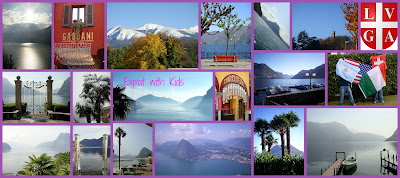The day was chosen because August 1st, 1291 was the date on which three Alpine cantons swore the oath of confederation, an act which later came to be regarded as the foundation of Switzerland. The representatives of Schwyz, Unterwalden and Uri met on the Rütli field, high above Lake Lucerne, to swear a bond of brotherhood, and agree to act jointly if their freedoms were threatened by outside aggressors.
Switzerland's National Day is right around the corner, so here are some true facts about this little country famous for its stability, safety and high quality standards:
- The very first Nobel Peace Prize was awarded to Jean Henri Dunant, a Swiss, in 1901. He is the founder of the International Committee of the Red Cross. Sixteen people from Switzerland have won the Nobel Prize in various fields.
- Since 1815, Switzerland has not been involved in any military conflict. It has strong relations with its neighbouring countries and is also a part of some international and UN organizations.
- Geneva is home to the second-largest of the four major office sites of the United Nations.
- The famous equation E=MC2 was devised by Albert Einstein in 1905, while he was in Switzerland.
- The large Hadron Collider in the world’s largest particle physics laboratory – CERN – is in Switzerland. It has been established under the ground.
- The world’s largest nuclear shelter, the Sonnenberg Tunnel, is in Switzerland. It can house up to 20,000 individuals for an extended period of time during a nuclear emergency.
- Switzerland has enough underground bunker capacity that it can hide its entire population in case of a nuclear war.
- Switzerland’s defence is well prepared for the event of an attack. It has already deployed technology to block access via roads, bridges, and railways across 3000 locations.
- Men in Switzerland are required to keep the firearms they are issued during their military service at home even after they leave the military to have the countries men ready to mobilise in the event of a threat.
- Assisted suicide in Switzerland is legal. It is also legal in China, Belgium, Canada and other few countries. There is, however, different legislation regarding the circumstances under which this is legal.
- Switzerland provides nearly all CO2-friendly electricity to its citizens. 39% of electricity comes from nuclear power plants, while 56% is generated by hydroelectric power plants.
- A giant three-legged chair in Geneva, Switzerland is dedicated to the opposition of using land mines. It is known as “The Broken Chair.”
- 23% of Switzerland’s total population of almost 8 million consists of foreigners.
- The divorce rate in Switzerland is about 43%, and people marry late: men at the age of 31.8 years and women at 29.5 years.
- The average age for Swiss women to have their first child is 30.4 years, which makes them the oldest women in Europe to do so.
- Switzerland: the best place in the world to be born, according to a recent quality-of-life index.
- Highly skilled people form the basis for Switzerland’s economy. Sectors such as banking, insurance, pharmaceuticals, biotechnology, microtechnology, etc. employ these skilled people.
- It is funny to note that there are more banks in the Switzerland than dentists.
- Half of the luxury watches produced in the world come from Switzerland. Brands like Tissot, TAG Heuer, Rolex, Patek Philippe, and Longines are all Swiss.
- The first waterproof watch was invented by Rolex in 1927 in Switzerland.
fun-facts-about-switzerland
more-fun-facts-about-switzerland


No comments:
Post a Comment